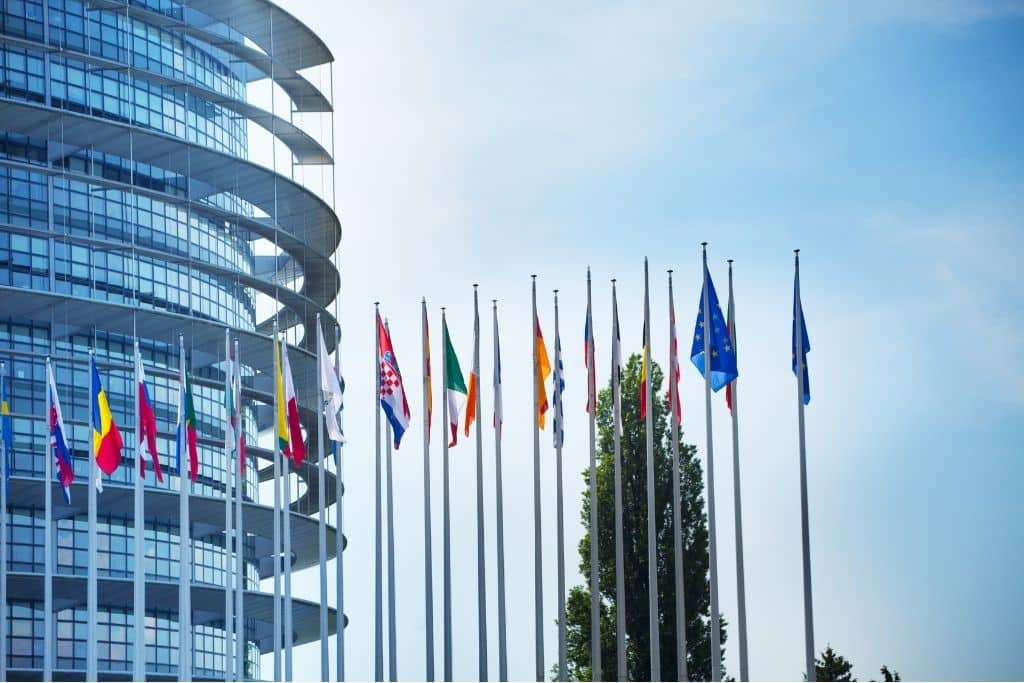Member states including Poland, Hungary, and Italy objected to a proposal to increase the EU emissions reduction targets from 55% to 57% by 2030 ahead of COP28.
—
EU environment ministers on Monday approved the bloc’s negotiating position at the upcoming COP28 summit in Dubai, agreeing to push for a “fully or predominantly decarbonised global power system” in the next decade with “no room for new coal power.”
The 27 member countries also agreed to push for a phase-out of unabated fossil fuels and an end to fossil fuel subsidies, all prerequisites for a net-zero future. A recent study showed that investments in fossil fuels are on the rise, with G20 members – including the European Union – spending a record $1.4 trillion in fossil fuel subsidies in 2022, more than double the pre-pandemic and pre-energy crisis levels of 2019.
The word “unabated” is highly controversial among environmentalists, as many believe it leaves room for continues fossil fuel production and usage through carbon capture and storage technology. In a statement, the Council said it recognises that cost-effective emissions reduction measures are readily available, though carbon capture technologies are still limited and “should not be used to delay climate action.”
In terms of clean energy, the bloc set a target to triple installed renewable capacity and doubling the rate of improvement in energy efficiency by 2030, taking into account the energy mix of individual member states. The bloc is already on track to meet its renewable targets, with a recent International Energy Agency (IEA) report saying that the energy crisis sparked by the Russia-Ukraine war has steered the renewable capacity to be upped by 40% in Europe by the end of next year.
The Council also called on all member countries to make “greater efforts” to integrate climate adaptation and mitigation into existing policies and across all sectors, adding that successfully conducting the first Global Stocktake at COP28 is a key priority.
The global stocktake is a two-year process that happens every five years, and is essential to collectively assess the progress of the implementation of the Paris Agreement and address opportunities for enhanced action. COP28 is expected to be more mitigation-focused, as countries will review their carbon reduction progress.
The new agreement puts the bloc as an indisputable leader and one of the most ambitious among the nearly 200 countries expected to attend the annual UN climate talks, which are set to begin in late November in Dubai.
“Today we send a strong message to our partners: the EU is the global leader on climate action,” said Teresa Ribera, Spain’s acting minister for the ecological transition, who chaired Monday’s talks. “In Dubai, we will be at the forefront of the negotiations to show the EU’s strongest commitment to the green transition and encourage our partners to follow our lead.”
“The EU is a driving force for change and we have to speak with a single voice in the world. We can simply not use difficulties as an excuse to turn back to a pre-Paris agreement situation,” she added.
Despite unanimously agreeing on a fossil fuel phase-out in the 2030s, environment ministers on Monday failed to agree on an updated EU climate pledge, which would have increased the current emissions reduction target from 55% to 57% by 2030, compared with 1990 levels. Poland, Hungary, and Italy were among the countries opposing the proposal, saying the proposal was too ambitious and confusing. However, Ribera noted how the EU was already overachieving on the target it had previously set.
Dan Jørgensen, Denmark’s minister for global climate policy, said that despite not agreeing on bolder targets, the negotiating position of the EU ahead of COP28 was still “extremely ambitious,” adding that this was the bloc’s “strongest mandate” ever.
A Long Road Ahead
According to the UN’s first stocktake of global efforts on climate released last month, countries are largely failing to meet their environmental commitments. The report also warns that the window to set ambitious climate policies and implement existing commitments in order to limit global warming to 1.5C above pre-industrial levels is “narrowing rapidly.”
In their most recent meeting in New Delhi, G20 leaders – which include the European Union – failed to address some of the most critical aspects of slowing down climate change, including setting a timeline to phase out planet-warming fossil fuels.
“Europe delivers, we overachieve, we want to do more,” said Ribera. “But we need the others to do more too. It’s not just a question for Europeans.”
You might also like: Negotiators Disappointed at Bonn Climate Talks’ Weak Outcome Ahead of COP28


















